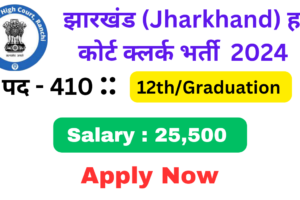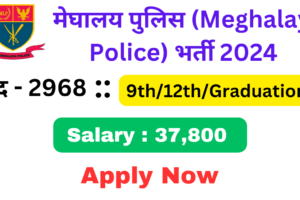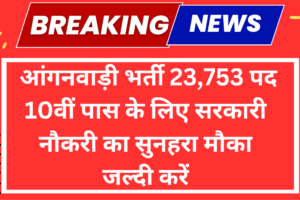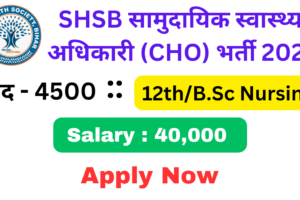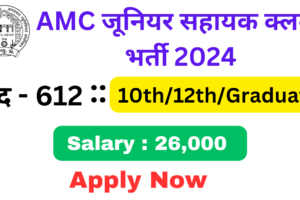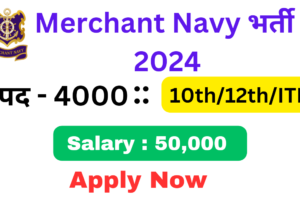Looking for the BA Economics course details, subjects list, and syllabus?
Here you will get all the details for BA Economics like subjects list, syllabus, course details, fees, admission process, salary, eligibility criteria, job profile, etc.
If you are interested in writing, reading, and analyzing then BA in Economics is one of the best courses for you.

BA Economics Course Details
Main Key Points
| Course Name | Bachelor of Arts in Economics |
| Eligibility Criteria | 12th class in any stream |
| Admission Process | Direct / Merit Based / Entrance Exam |
| Course Duration | 3 years ( 6 Semesters ) |
| Course Fees | 10K – 30K per annum |
| Salary | 3 Lakh – 6 Lakh per annum |
| Exam Type | Semester Wise |
| Job Profile | Teacher, Professor, Executive Assistant, Clerk, lecturer, Budget Analyst, Finance Analyst, Sales Analyst, Technical Writer, Copywriter, Journalist, Civil Services Officer, Educator, etc. |
| Higher Study | MA, MBA, MSW, MFA, MCom, MMS, B.Ed, Digital Marketing, etc. |
The course Bachelor of Arts in Economics is an undergraduate degree course after the 12th class, which is of 3 years duration.
BA Economics course provides information about the fundamentals of economics, the big and small achievements related to economics, and how you can use economics for the betterment of society.
Economics course gives you in-depth information about microeconomics, and microeconomics and applicable working methods about economics and economic statistics and history of economics.
If you want to advance your career in the economic sector, in the financial sector, or in any big corporate sector then you can join BA economics.
In this economics course, you study the theory of economics, and get proper information about econometrics and applied economics.
Economics is the study of social science related to production, consumption of goods and services, distribution, human resources use by society, etc.
Eligibility Criteria
12th class in any stream from a recognized board.
Students from any stream can get admission to a bachelor of arts in political science, no matter whether a student is from a science background, commerce background, and arts background.
If you pass in the 12th class you are eligible for a bachelor’s degree in Economics.
There are some colleges that want 50% marks and some colleges just want a pass class. And there are some colleges that have their own entrance exams.
Course Duration
3 Years ( 6 Semesters )
BA Economics is a regular, distance, and online 3 years course that includes 6 semesters.
Exam Type
Semester wise
Now almost every university takes exams on a semester basis.
There are 2 semesters in a year and each semester cover 50% syllabus of a year.
Therefore, according to the semester, there is only a 50% syllabus in the examination.
Admission Process
Direct / Merit Based / Entrance Exam
The admission process varies from university to university.
There are so many institutes that offer direct admission on basis of 12th marks obtained from a recognized board.
And there are many institutes that take an entrance exam and also conduct group discussions for admission.
Direct Admission
There are a lot of colleges in India that offer direct admission into a BA in Economics course. They don’t demand any entrance test to crack to get admission to that particular college.
They just want the 12th class pass in any stream ( Arts, Commerce, and Science ) from a recognized board. You need not secure a minimum of 50% marks to get admission.
Generally, Private colleges offer direct admission to students.
You just need to go to the college with the relevant documents, they will check them and you will get admission to any respective college.
Merit-Based Admission
There are many governments and private colleges that offer admission on merit based on the BA in Economics course.
Generally, they conduct the online-based selection process so that they can give admission based on merit. Also in Offline mode.
You have to fill application form step by step –
Step 1 – Registration
Step 2 – Log in
Step 3 – You have to fill out the application form
Step 4 – Upload images of relevant documents
Step 5 – Preview the profile
Step 6 – Final Submission
Step 7 – Pay the application fees
Based on the Entrance Exam
There are some reputed universities that demand entrance exams to take admission.
If you want to join the BA in Economics course, you have to pass the entrance exam.
The entrance exam can be passed in two ways.
If you want, you can pass the national entrance exam or you can pass the entrance exam of any college.
Their selection process is the same as merit-based admission but you just have to add a score on the entrance exam.
Popular Entrance Exam
- BHU UET – Banaras Hindu University Undergraduate Entrance Test
- CUET – Christ University Entrance Test
- GLAET – GLA University Entrance Test
- JMI EE – Jamia Millia Islamia Entrance Exam
- SET – Symbiosis Entrance Test
- SUAT – Sharda University Admission Test
- IPU CET – Guru Gobind Singh Indraprastha University Common Entrance Test
Course Fees
It is the charge students paid for their tuition classes in educational institutes for their education purpose.
Course fees depend upon the institute so they charge as per their demand.
BA in Economics course fees varies from college to college as follows.
Rs. 5K – 30K as per institute or state ( Government )
Rs. 10K – 1Lakh as per institute or state ( Private )
The bigger the reputed college, the higher the fees they charge.
Salary
The salary depends upon the organization and what knowledge you have and it increases as per your experience, knowledge, performance, and skills.
As a fresher, you can expect 3 lakh – 6 lakh per annum
BA English Course Details: Subjects and Syllabus
BA Economics Subjects List and Syllabus
1st Year
| Semester 1 | Semester 2 |
|---|---|
| Introductory Microeconomics | Introductory Macroeconomics |
| Mathematical Methods for Economics-I | Mathematical Methods for Economics-II |
| Ability Enhancement Compulsory Course (AECC)-I | Ability Enhancement Compulsory Course (AECC)-II |
| Generic Elective (GE) Course-I | Generic Elective (GE) Course-II |
Semester 1
1. Introductory Microeconomics
- Exploring the subject matter of Economics
- Supply and Demand: How Markets Work, Markets and Welfare
- The Households
- The Firm and Perfect Market Structure
- Imperfect Market Structure
- Input Markets
2. Mathematical Methods for Economics-I
- Preliminaries
- Functions of one real variable
- Single-variable optimization
- Integration of functions
- Difference equations
3. Ability Enhancement Compulsory Course (AECC)-I
4. Generic Elective (GE) Course-I
Semester 2
1. Introductory Macroeconomics
- Introduction to Macroeconomics and National Income Accounting
- Money
- Inflation
- The Closed Economy in the Short Run
2. Mathematical Methods for Economics-II
- Differential equations
- Linear algebra
- Functions of several real variables
- Multi-variable optimization
3. Ability Enhancement Compulsory Course (AECC)-II
4. Generic Elective (GE) Course-II
2nd Year
| Semester 3 | Semester 4 |
|---|---|
| Intermediate Microeconomics-I | Intermediate Microeconomics-II |
| Intermediate Macroeconomics-2 | Intermediate Macroeconomics-II |
| Statistical Methods for Economics | Introductory Economics |
| Skill Enhancement Course (SEC)-I | Skill Enhancement Course (SEC)-II |
| Generic Elective (GE) Course-III | Generic Elective (GE) Course-IV |
Semester 3
1. Intermediate Microeconomics-I
- Consumer Theory
- Production, Costs and Perfect Competition
2. Intermediate Macroeconomics-2
- Aggregate Demand and Aggregate Supply Curves
- Inflation, Unemployment and Expectations
- Open Economy Models
3. Statistical Methods for Economics
- Introduction and Overview
- Elementary Probability Theory
- Random Variables and Probability Distributions
- Random Sampling and Jointly Distributed Random Variables
- Sampling
- Point and Interval Estimation
4. Skill Enhancement Course (SEC)-I
5. Generic Elective (GE) Course-III
Semester 4
1. Intermediate Microeconomics-II
- General Equilibrium, Efficiency and Welfare
- Market Structure and Game Theory
- Market Failure
2. Intermediate Macroeconomics-II
- Economic Growth
- Microeconomic Foundations
- Fiscal and Monetary Policy
- Schools of Macroeconomic Thoughts
3. Introductory Economics
- Nature and Scope of Econometrics
- Statistical Concepts
- Simple Linear Regression Model: Two Variable Case
- Multiple Linear Regression Model
- Violations of Classical Assumptions: Consequences, Detection and Remedies
- Specification Analysis
4. Skill Enhancement Course (SEC)-II
5. Generic Elective (GE) Course-IV
3rd Year
Semester 5
| Semester 5 | Semester 6 |
|---|---|
| Indian Economy-I | Indian Economy-II |
| Development Economics-I | Development Economics-II |
| Discipline-Specific Elective (DSE) Course-I | Discipline-Specific Elective (DSE) Course-III |
| Discipline-Specific Elective (DSE) Course-II | Discipline-Specific Elective (DSE) Course-IV |
1. Indian Economy-I
- Economic Development since Independence
- Population and Human Development
- Growth and Distribution
- International Comparisons
2. Development Economics-I
- Conceptions of Development
- Growth Models and Empirics
- Poverty and Inequality: Definitions, Measures and Mechanisms
- Political Institutions and the Functioning of the State
3. Discipline-Specific Elective (DSE) Course-I ( Anyone from the following )
- (i) Economics of Health and Education
- (ii) Applied Econometrics
- (iii) Economic History of India
- (iv) Topics in Microeconomics-I
- (v) Political Economy-I
- (vi) Money and Financial Markets
4. Discipline-Specific Elective (DSE) Course-II ( Anyone from the following )
1. Economics of Health and Education
- Role of health and education in human development
- Topics in health economic theory
- An economic evaluation of health care
- Public policy in the health sector
- Education
- The education sector in India: an overview
2. Applied Econometrics
- Stages in empirical econometric research
- The linear regression model
- Advanced topics in regression analysis
- Panel data models and estimation techniques
- Limited dependent variables
- Introduction to econometric software
3. Economic History of India 1957-1947
- Colonial India: background and introduction
- Trends in national income, population; labor and occupational structure
- Agriculture, agrarian structure and land relations
- Railways and industry
- Economy and state in the imperial context
4. Political Economy-I
- Analysing Social Change in Historical Perspective
- Capitalism as an Evolving Economic System
- The State in Capitalism
5. Money and Financial Markets
- Money: concept, functions, measurement
- Financial institutions, markets, instruments, and financial innovations
- Interest rates
- Banking System
- Central banking and monetary policy
Semester 6
1. Indian Economy-II
- Macroeconomic Policies and Their Impact
- Policies and Performance in Agriculture
- Policies and Performance in Industry
- Trends and Performance in Services
2. Development Economics-II
- Demography and Development
- Land, Labor and Credit Markets
- Individuals, Communities and Collective Outcomes
- Environment and Sustainable Development
- Globalization
3. Discipline-Specific Elective (DSE) Course-III ( Anyone from the following )
- (viii) Political Economy-II
- (ix) Comparative Economic Development (1850-1950)
- (1857-1947) (x) Financial Economics
- (xi) Topics in Microeconomics-II
- (xii) Environmental Economics
- (xiii) International Economics
4. Discipline-Specific Elective (DSE) Course-IV ( Anyone from the following )
- (viii) Political Economy-II
- (ix) Comparative Economic Development (1850-1950)
- (1857-1947) (x) Financial Economics
- (xi) Topics in Microeconomics-II
- (xii) Environmental Economics
- (xiii) International Economics
BA Political Science Course Details
Why should I Join BA in Economics ( Benefits )
It is a less expensive course.
We can join after the 12th in the stream.
You can become a teacher, executive, editor, professor, writer, professor, lecturer, copywriter, journalist, technical writer, etc.
You can explore your career in fields like mass communication, journalism, hospitality, NRI, civil services, publishing creative writing, advertising, media reporting, marketing, teaching areas, research, etc.
You can gain knowledge about communication skills, translation studies, creative writing, film studies, literature, critical thinking, literary skills, etc.
You get a lot of versatile career options, in which you get a chance to work in different types of industries and dimensions.
Apart from this, as an economist, you can do your work in the private sector, public-private sector, government sector, business sector, and industry in all these places.
Your foundation knowledge of economics will become very good, and due to this, you will be able to crack highly reputed jobs.
You will have a great hold in the finance sector, in the market, and in resource management, and your in-depth understanding will increase.
Your scope of working in various fields will increase.
You will be able to do all these things like Actuarial Analyst, Data Analyst, Economist, Financial Risk Analyst, Forensic Accountant, Statistician, Investment Analyst, and Data Scientist, Quantity Surveyor, Business Development Manager. And in all these fields you will be able to advance your career.
The biggest advantage you get after doing these economics courses is that you know how to manage risk.
Risk management is such a thing, which creates the ability to do revolutionary work in any financial sector, and advances the ability to take bold steps, which leads to the progress of any country.
A student who completes a course BA in Economics, his critical thinking skills are highly developed.
You can get many career options and gets a chance to choose a diversified career option.
If you get a job in some high positions after completing the BA Economics course, then your reputation in society increases a lot.
Understanding the market and market economy of any country becomes a left-handed game for you.
Your social influence can increase very well.
Disadvantages of BA Economics course
One of the disadvantages of taking a BA economics course can be that you will have to spend your life in mathematics for the rest of your life. Practicing mathematics will never end for you.
In today’s time, there are many such economics specialists, who are a fierce competition to get to higher positions.
After completing the BA economics course, if you want to go to the big positions, then you will have to face a lot of competition.
According to statistics, it is known that the future of a person who does an economics course is mostly not secure. Of course, it is very difficult for him to get the right job.
In comparison to normal people, if an economist makes a mistake in any kind of calculation, then it can result in a loss of lakhs of crores. One mistake of the Economist can lead to a huge uproar. The governments of many countries can also fall.
An Economist or a person who completes his BA economics course then he can get the disease of overthinking and that person thinks more all the time.
Required Skills
Creative and Innovative Skills
Creativity and innovative skills are the most important skills for BA in Economics degree holders so that you can use these skills in teaching, writing content, researching, copywriting, journalism, etc.
These creative and innovative skills should have everyone not only BA in Economics degree holders because it helps to grow in every sector to create business and research new things.
Subjects Knowledge
If you want to achieve to go in the teaching area, want to study further, or want to go in field related industry then must have good knowledge in core subjects.
Students who want to score well in the exam then you should have good knowledge of all the subjects.
And core subject knowledge is very useful in interviews, group discussions, campus placement, and getting a job.
Critical Thinking and Problem Solving Skills
Critical thinking and problem skills, these skills are very important for all students to grow in life.
Critical thinking helps you to make a decision at right time, bring new ideas to increase business and self-growth, find a solution, create opportunities for yourself, and many more.
And problem-solving skills help a lot grow your business, it also creates opportunities to grow yourself and your business, and you can become a great leader.
As a BA in Economics student, you must have these skills.
Ability to work under Pressure
If you want to work in a company or any organization then you have to work under the pressure of a boss so you should have the ability to work under pressure.
As a fresher, you have to work underboss or manager you have to remain calm in every situation, stay focused on work so this will help you a lot to grow yourself.
So if you want to do a job then prepare to work under pressure.
Teamwork and Collaboration Skills
After completing of BA in Economics course you will go for the job in any company then you have to work with your team members so you must have teamwork and collaboration skills.
Sometimes the company works on a big project at that time all the employees work with each other so that time these skills prove very useful.
So teamwork and collaboration skills are very important in a company or everywhere where two or more people work with each other.
As a BA in Economics student, you must develop these skills.
Leadership Skills
Leadership skill is a very important skill for those who want to become a manager or a leader in a company or want to do their own business.
If you have leadership skills then you can make decisions easily, inspire people, motivate them, become honest, create a vision, become a problem solver, a critical thinker, become judgemental, etc.
If you want to become a great leader then you must have this skill so that you can achieve the desired goal for yourself or your company.
Communication Skills
Communication skills are very important for everyone to do something big in life.
If you want to do a business, want to do a job, want to travel, or want to do anything communication skills play a vast role.
As a BA in Economics student, you must have these communication skills so that you can achieve whatever you want, you can fulfill your desire by improving your communication skills.
Good communication increases confidence, builds team, makes better relationships, increases engagement and productivity, handles conflicts, increases job satisfaction, increases problem-solving ability, improves presentation skills, builds trust, etc.
Job Profile
| Teacher | Professor |
| Economist | Executive Assistant |
| Lecturer | Sales Analyst |
| Civil Service Officer | Budget Analyst |
| Clerk | Financial Analyst |
| Economic Consultant | Market Research Analyst |
| Content Writer | Journalist |
Teacher
You can become a teacher after BA in Economics to get an opportunity to teach students in a school or a college about Economics subjects.
You can also share knowledge and information about career options, empower girls to study, inspire students and people to do something big in their life, make a positive impact on students, can teach students about how to achieve success in their life, how to set a goal and achieve it.
Becoming a teacher and teaching students is one of the best services because you have the power to change people’s life.
Content Writer
BA in Economics course provides a lot of knowledge and information to explore your career in the content writing field.
A Content Writer is one who writes content for websites, blogs, e-books, and social media, and also can write books, stories, etc.
You can write related to economics, finance, market or as per your interested area.
Types of Content Writing
- Article Writing
- Business Writing
- Technical Writing
- Story Writing
- E-Book Writing
- Website Content Writing
- Book Writing
- SEO Content Writing
- Academic Writing
- Freelancer Writing
Journalist
Becoming a journalist after BA in Economics best career option because you became very good at the knowledge of economics by choosing economics in your BA.
It helps you a lot to gather information from events, interview sessions, and programs because when you will have good knowledge you will analyze very well.
It improves writing skills, improves communication skills, increases critical thinking and creativity, you can become a very good analyzer and researcher, etc.
Copywriter
The copywriter is one who drives sales, leads generates, and brings businesses by running ads on social media, websites, emails, etc.
They are expert in storytelling, writing emotional content, creating extraordinary content, and public relations so they drive traffics easily and brings business.
It is also called marketing writers.
Types of Copywriters
- Social Media Copywriter
- Technical Copywriter
- Direct Email Copywriter
- Long-Form Copywriter
- Digital Copywriter
- Catalog Copywriter
- Brand Copywriter
- Public Relation Copywriter
- Marketing Copywriter
- SEO Copywriter
- Print Copywriter etc.
Civil Service Officer
You can explore your career by clearing UPSC ( Union Public Service Commission ) and becoming a civil service officer ( IAS, IPS, IFS, etc ) after completing graduation in BA Economics
By becoming a class 1 officer ( IAS, IPS, IFS ) you can get huge respect from society. It is too difficult to become a civil service officer but not impossible so you try your level best to crack the exam ( UPSC ).
There are a lot of benefits who becoming a civil service officer like a government job, huge respect, job security, stable income, and a lot of other facilities such as home, car, assistant, driver, security, etc.
Clerk
The clerk is one who works in the office and has worked like looking after accounts, recording data, and other office works in a company, banks, court, school, college, etc.
You can become a clerk easily after completing graduation BA in economics because you will get a graduation degree in economics.
There are a lot of benefits for a clerk such as a very good salary, you can get a promotion by your performance, you can become a probationary officer ( PO ) also in the banks, having less workload, etc.
Best Courses after Bachelor of Arts(BA)
1. MA
MA – Master of Arts
Master of Arts ( MA ) is one of the most popular and best post-graduation degree courses after a BA in Economics.
You can become a master in economics, you will get knowledge of finance, management, and economics. It will help you a lot in day-to-day life.
2. MSW
2. MSW – Master of Social Work
Master of Social Work is the best post-graduation degree course after BA in Economics or BSW ( Bachelor of Social Work ).
If you are interested in serving people who are below the poverty level, unemployed, with alcoholism, drug abuse, old age, and uneducated.
Then you must have to join this course.
If you want to educate society for a better life, want to make a good impact in someone’s life want to solve their problem, and many more, then the master of social work can best career option for you.
3. MBA
MBA – Master of Business Administration
It is also the most preferable professional course for BA students in the management, marketing, and finance field.
If want to do business then you must join MBA because it provides a lot of knowledge about how to do business.
Nowadays the MBA degree has become the most demanding course because of new start-ups, trends of doing business, and many more.
4. MFA
MFA – Master of Fine Arts
Master of Fine Arts is one of the best post-graduation degree courses after or BA in Economics.
If want to become an artist, master any performing arts like dance, music, drama & theater, film Making, etc.
Or master in visual arts like creative writing, painting, literature, photography, animation, graphic designing, applied arts calligraphy, textile design, printmaking, digital arts, etc.
Then you should go for an MFA ( Master of Fine Arts ) in your interested area.
5. MMC
MMC – Master of Mass Communication
Master of Mass Communication is one of the best courses after BA in Economics for those who are interested in news anchoring, reporting, copywriting, etc.
There are several important specializations in bachelor of journalism and mass communication such as,
- Television
- Radio
- News channel
- Newspaper etc.
6. B.Ed
B.Ed – Bachelor of Education
It is the best course after BA in Economics for those who want to become a teacher for government and private schools, the government, and private colleges.
If you are interested to join the teaching field then you must join the bachelor of education course.
7. Digital Marketing
It is also the best course after BA in Economics because digital marketing is on-trend these days.
Nowadays, Internet usage is increasing day by day
Generally, No need for any special qualification to learn digital marketing.
If you are in 6th, 10th, 12th, or graduate, you can start to learn digital marketing.
Digital marketing contains courses as follows.
| Blogging | Affiliate marketing |
| Social Media Marketing | Mobile Marketing |
| Web Analytics | Email Marketing |
| Sales funnel | Convention rate optimization |
| Search Engine Optimization | Content Marketing |
Career Scope in Government Organizations
You can also prepare for Government job exams such as.
UPSC( Union Public Service Commission ) Civil Services Exam for
- IAS( Indian Administrative Service )
- IPS( Indian Police Service)
- IFS ( Indian Foreign Service).
Banking Exam for
- Bank PO( Probationary Officer )
- Bank Clerk.
RRB Exam for – TC, Clerk
SSC Exam for
- Income Tax Officer(CBDT)
- Inspector(CBEC)
- Assistant Audit Officer
- Assistant in the Ministry of external affairs(MEA)
- Inspector(Central excise)(CBFC)
- Inspector ( Preventive Officer )
- Assistant Enforcement Officer(AEO) and many more.
And state government also provides so many of the best jobs for Class-1, Class-2, and Class-3 like
- Dy. Section Officer
- Dy. Mamlatdar
- Junior Clerk, etc.
So the arts stream is very good you can choose for your bright future.
Top Colleges for BA in Economics in India
- Christ University, Bangalore
- Daulat Ram College, New Delhi
- Chandigarh University, Chandigarh
- Indian Institute of Art and Design
- Presidency University, Kolkata
- Amity University, Gurugram
- Lady Shri Ram College for Women, New Delhi
- Shaheed Bhagat Singh College, New Delhi
- Hansraj College, New Delhi
- Miranda House, New Delhi
Read More –
BA English ( Hons ) Course Details: Subjects and Syllabus
BA Sociology Course Details: Subjects and Syllabus
BA History course Details: Subjects and Syllabus
FAQs
Q1 – What are the best courses after BA in History?
A – There are some best courses after BA such as MA, MFA, MBA, Digital Marketing, MBA, etc.
Q2 – What are the subjects in BA economics first semester?
A – Introductory Microeconomics, Mathematical Methods for Economics-I, Ability Enhancement Compulsory Course (AECC)-I, Generic Elective (GE) Course-I.
Q3 – Is BA in history a good course?
A – It is a very good course after 12th arts. You can study for your bright future.

